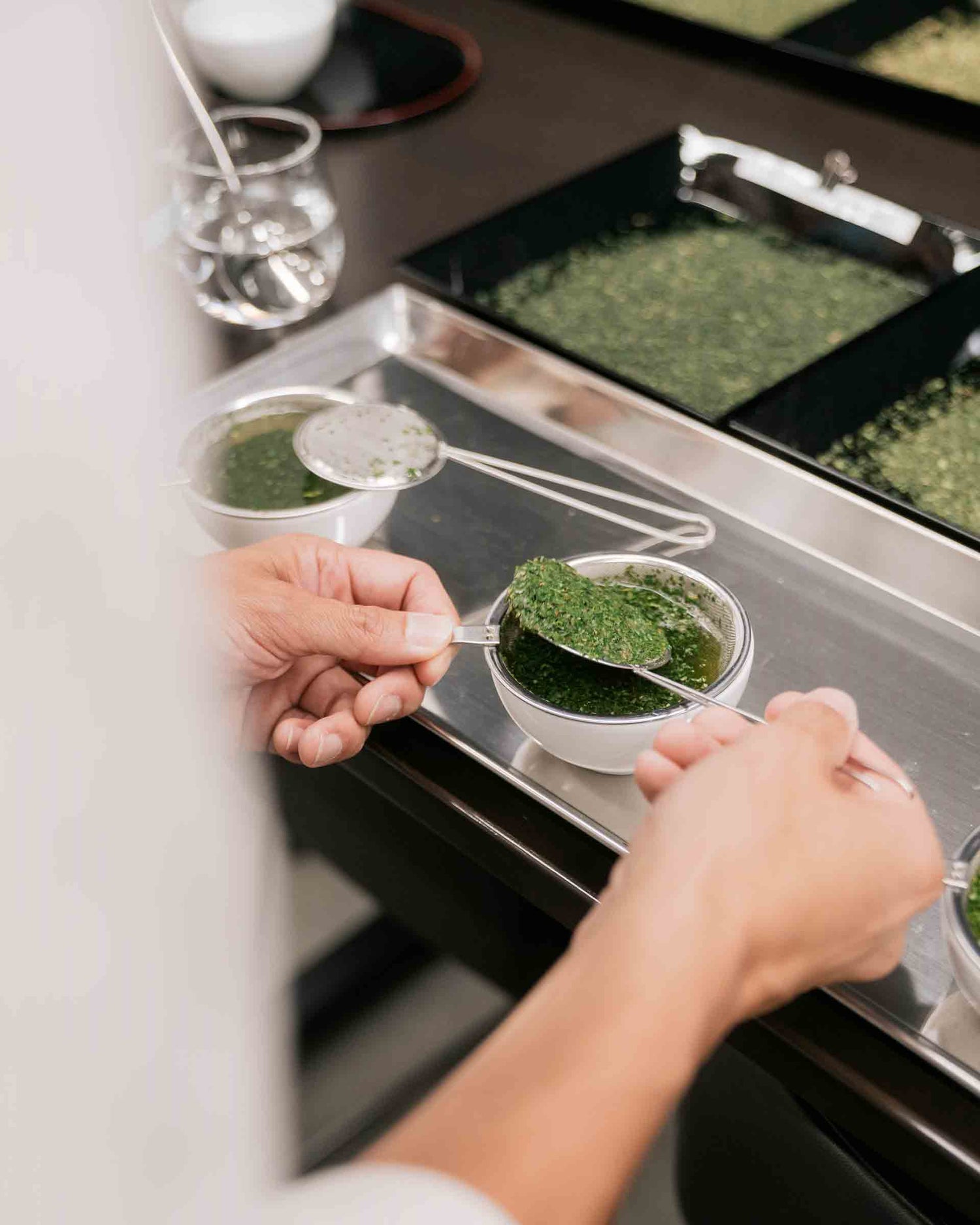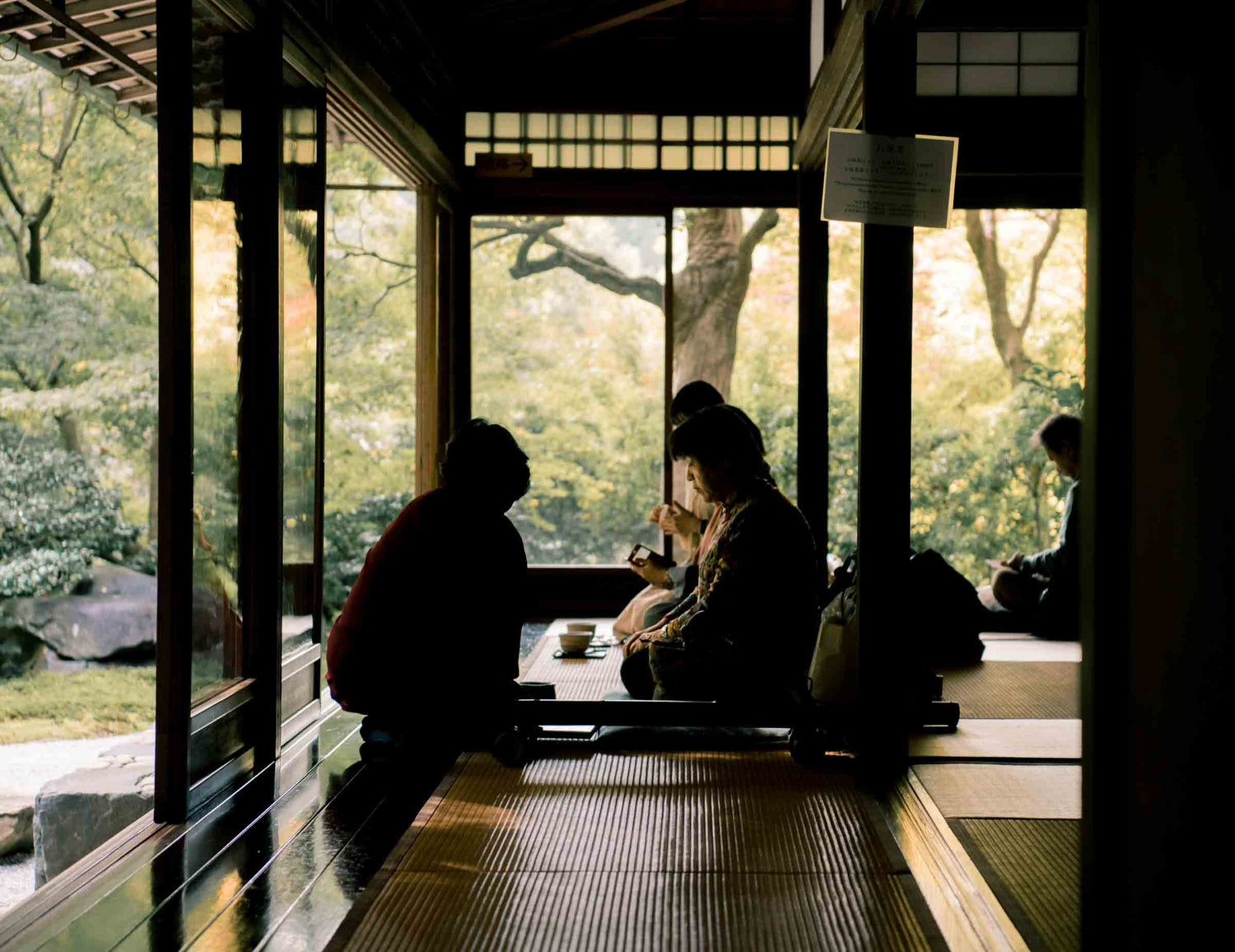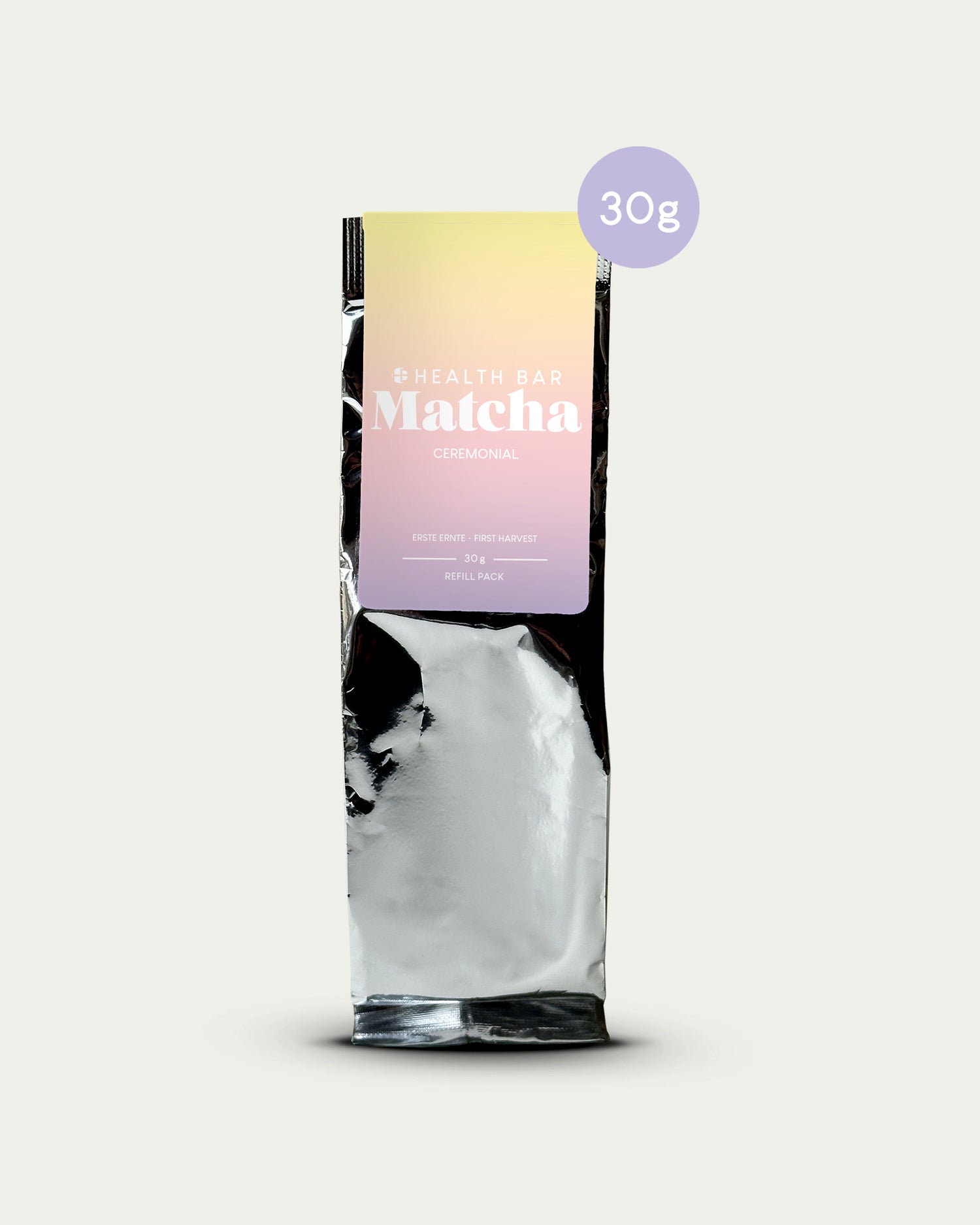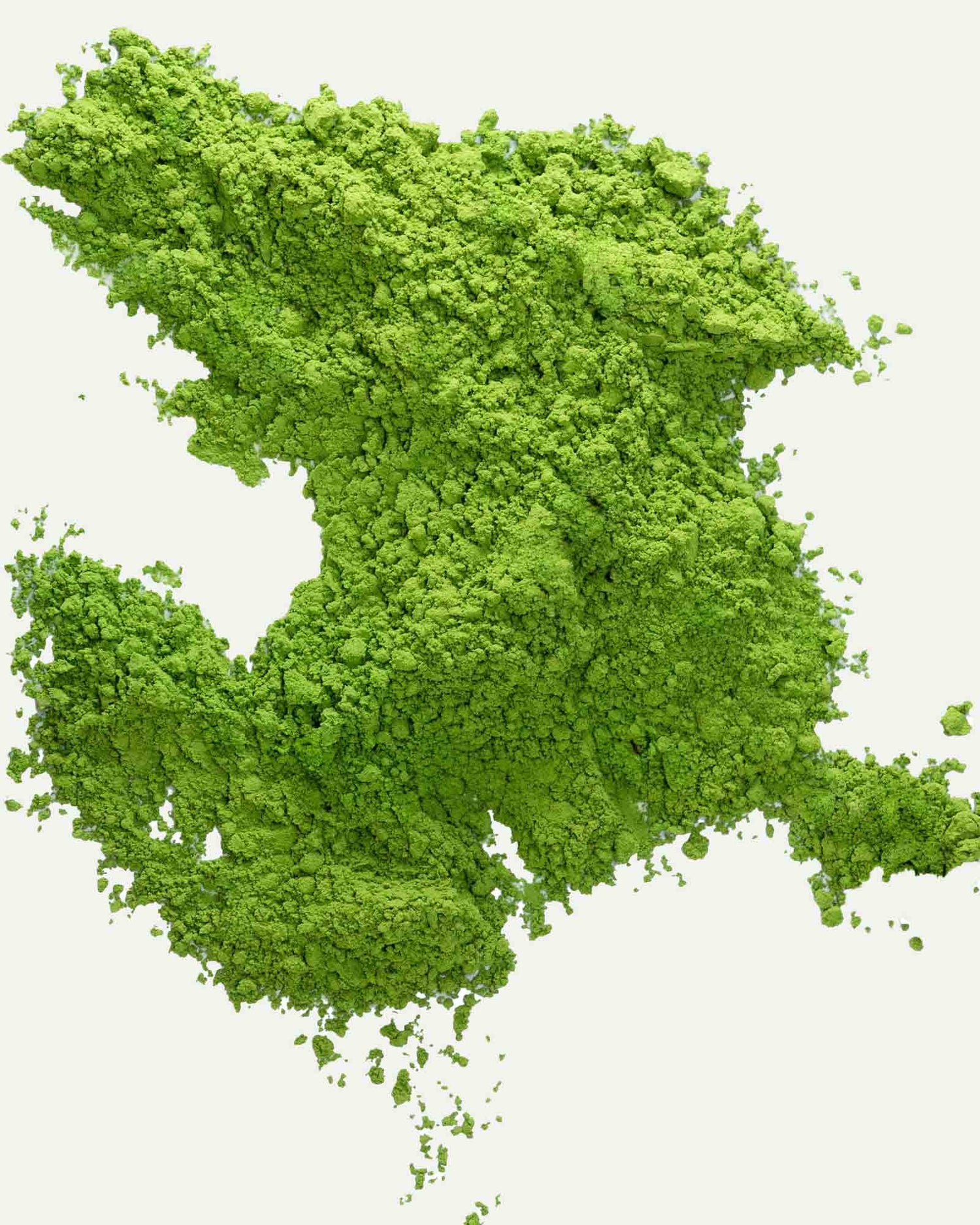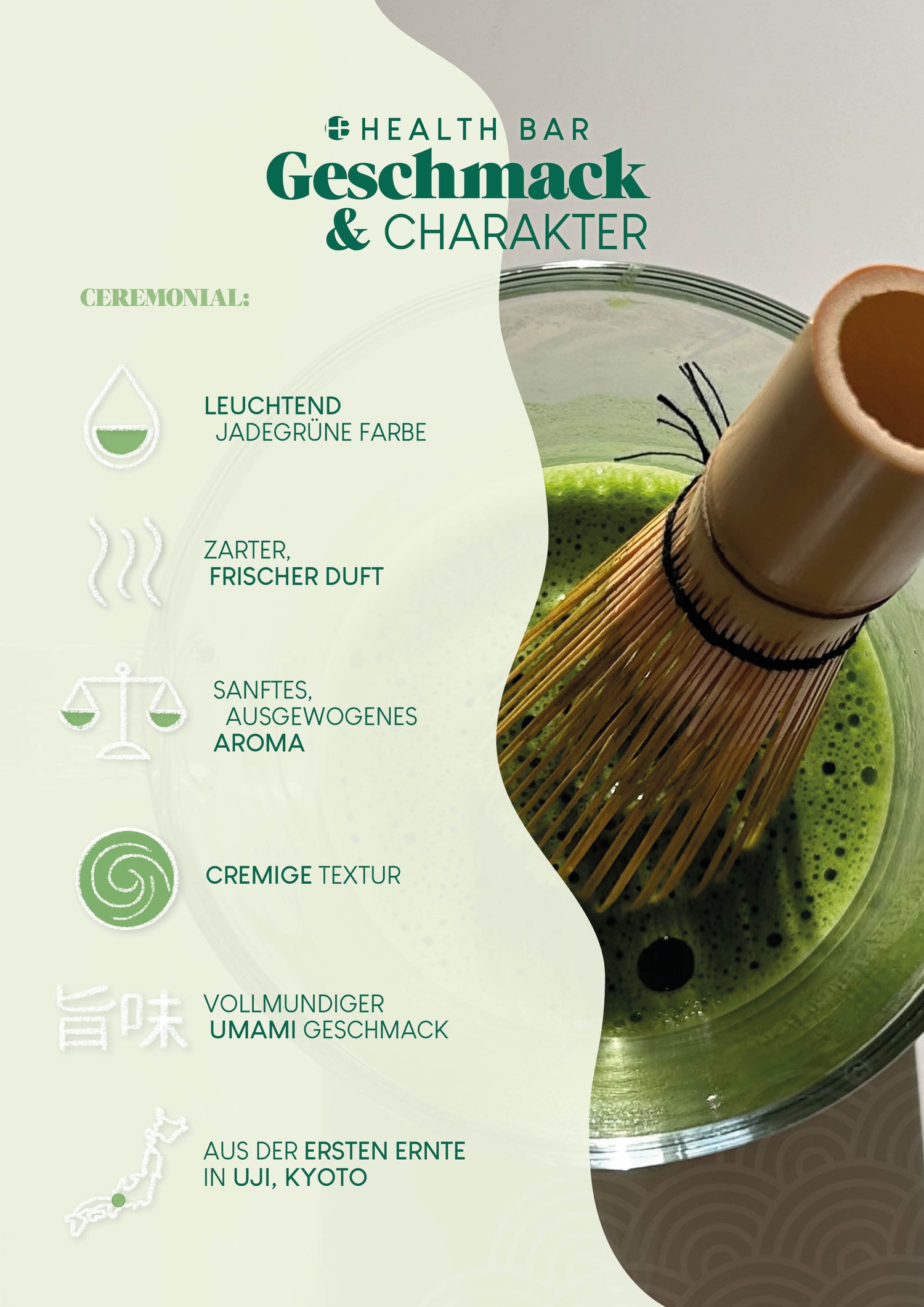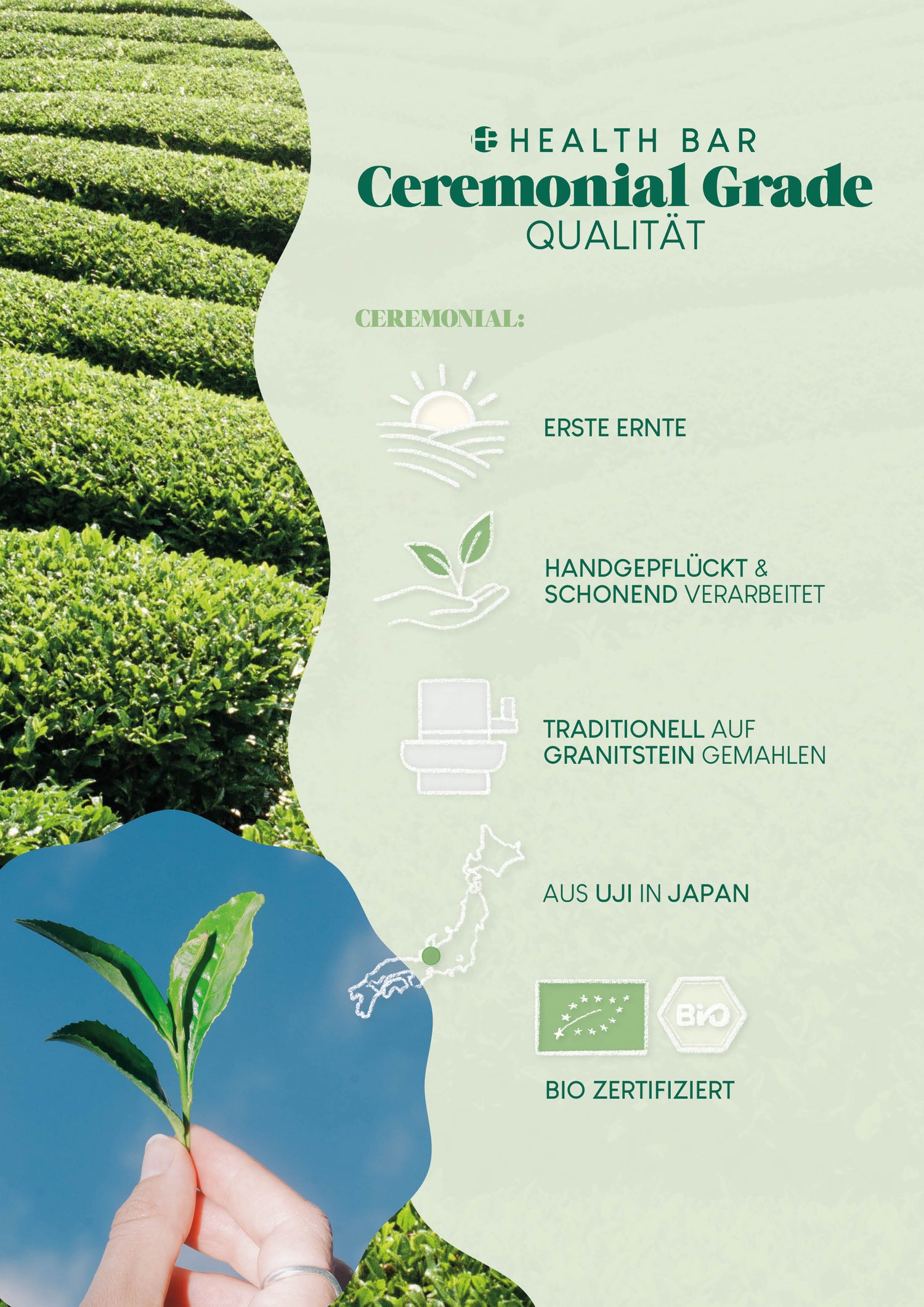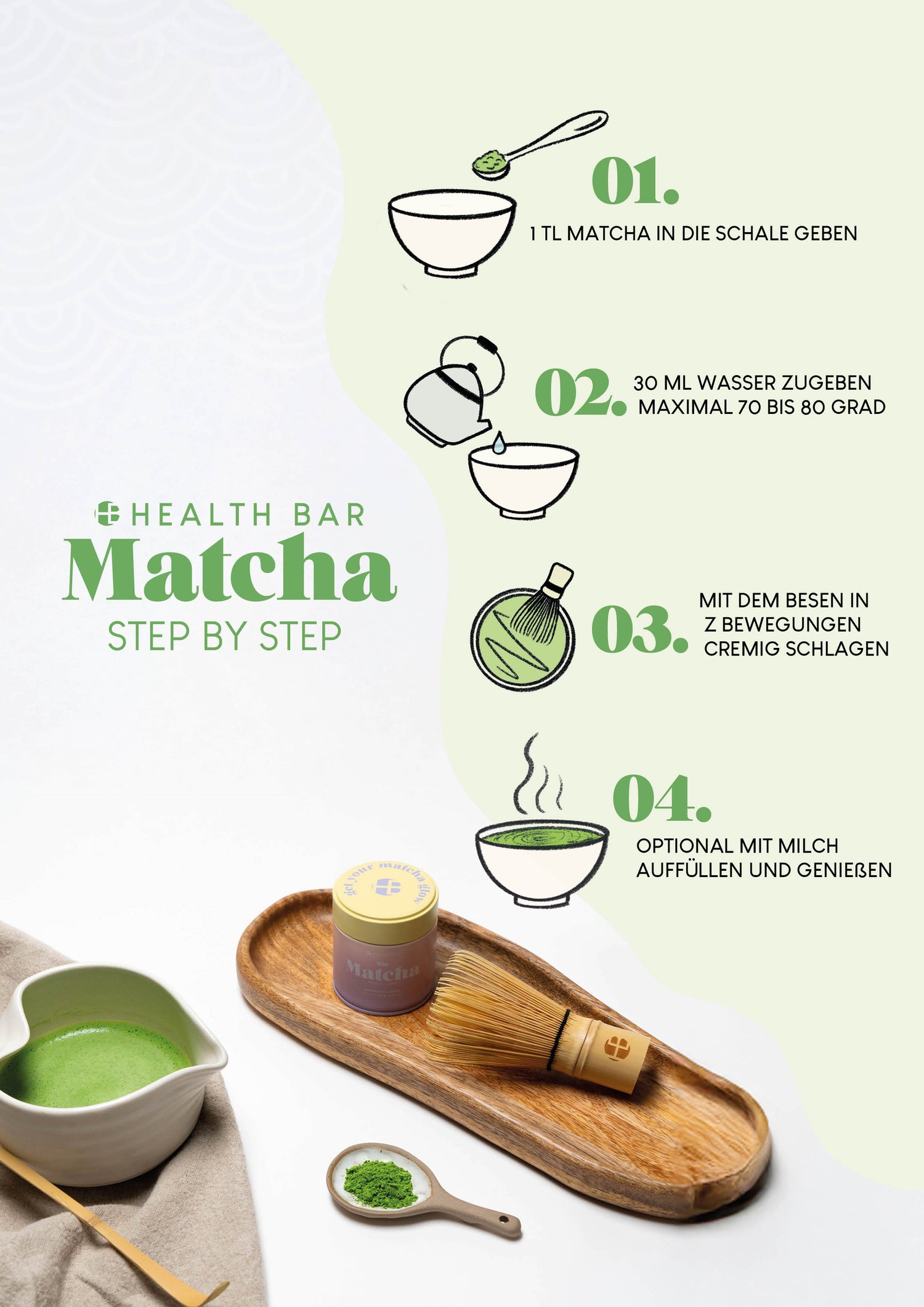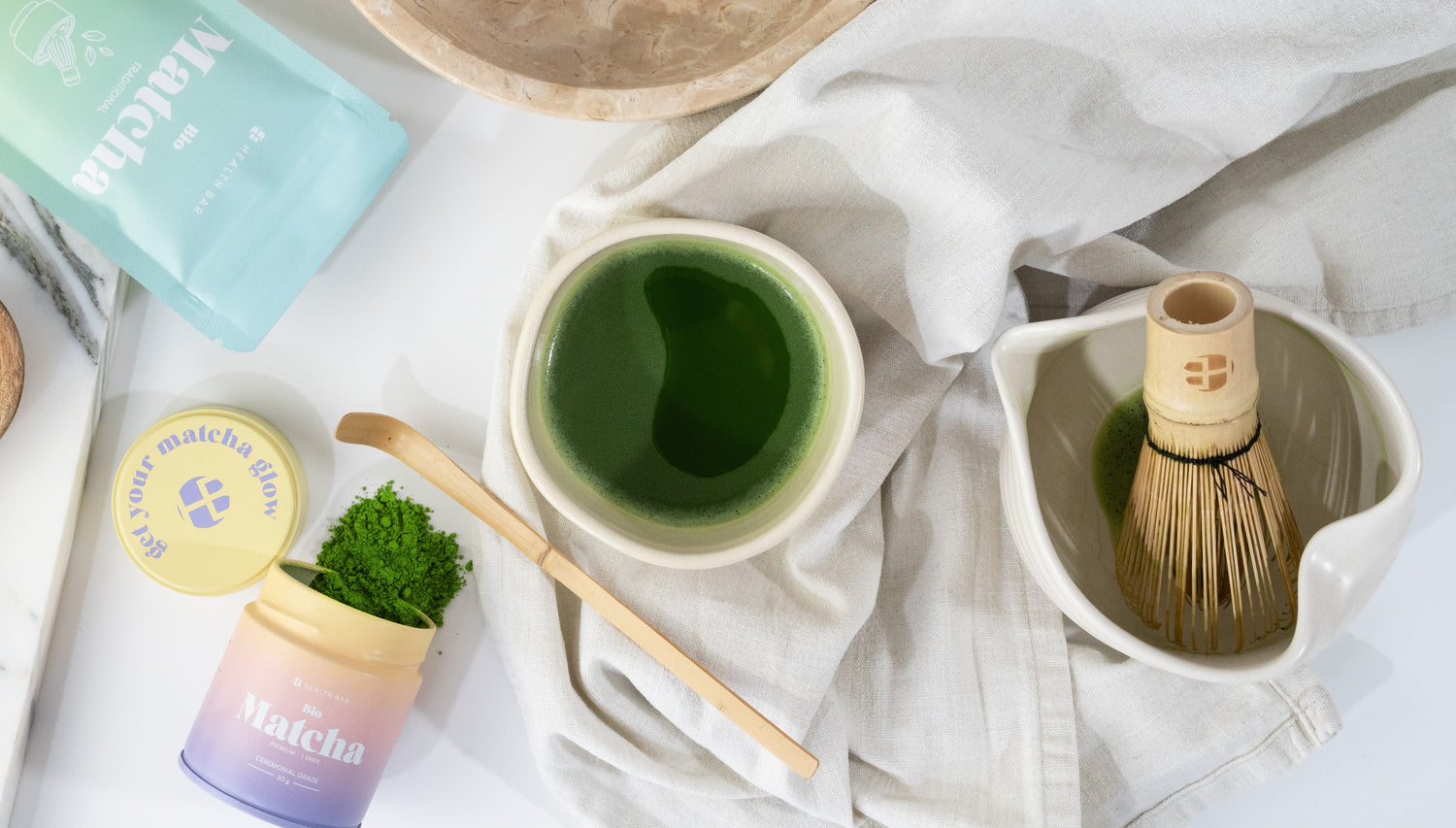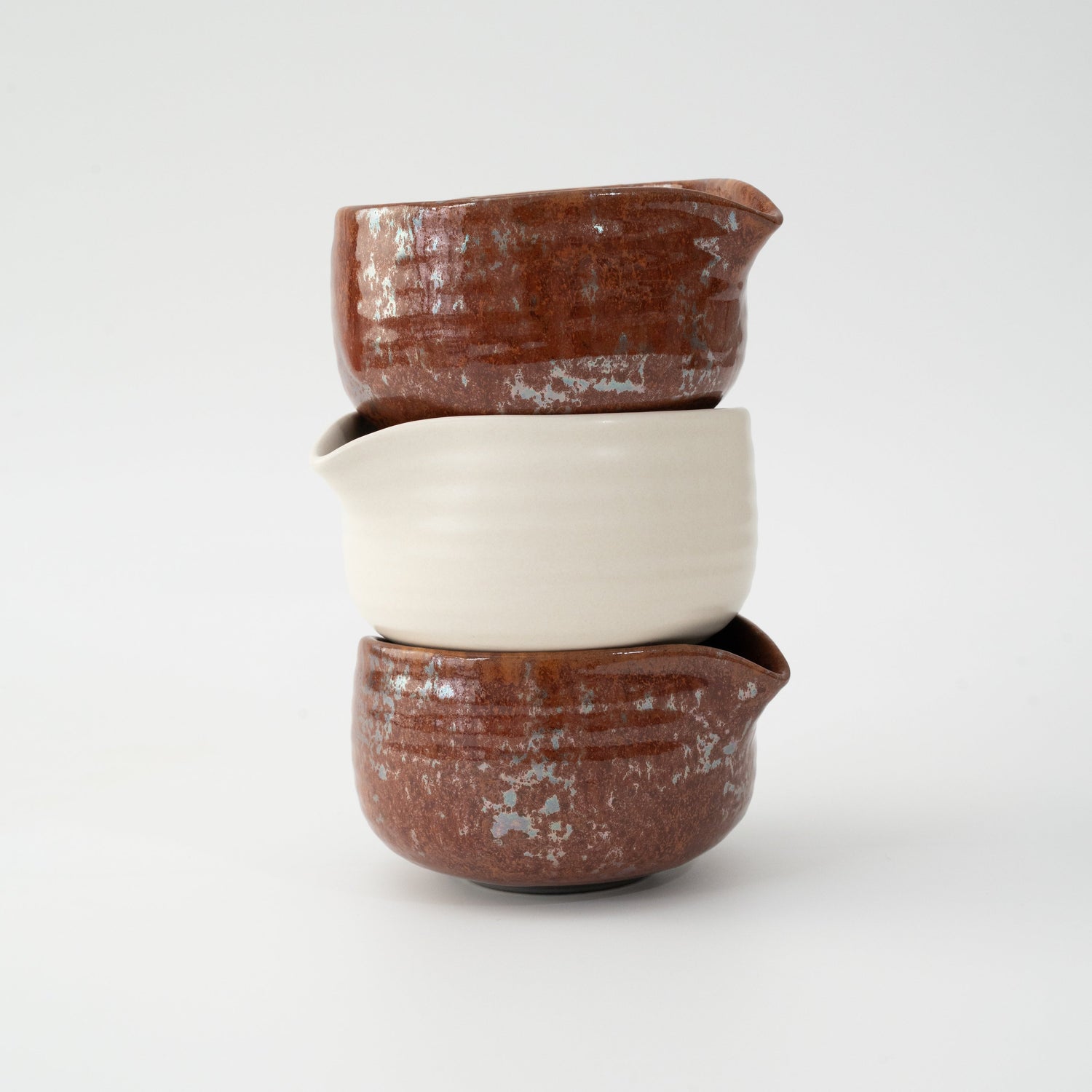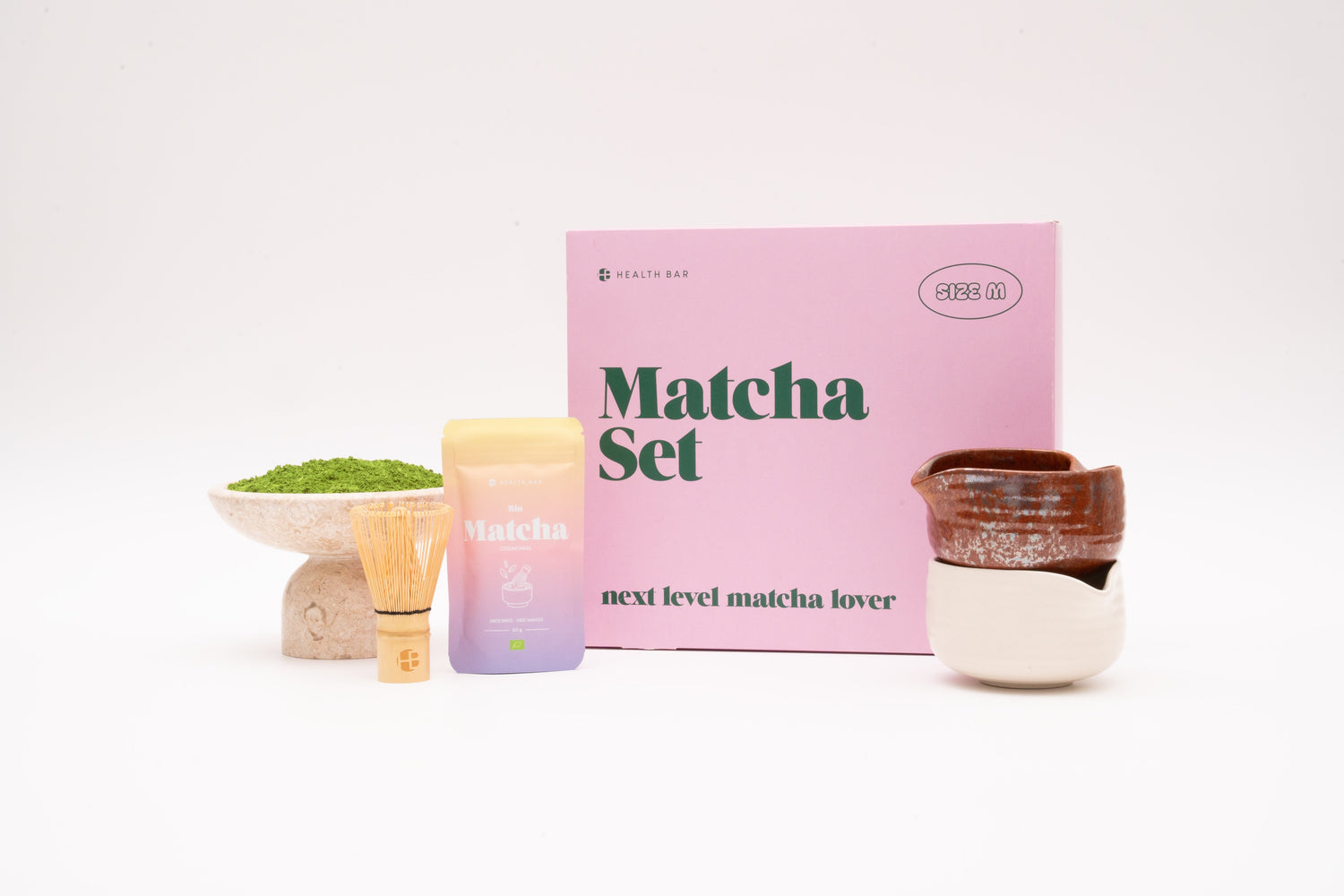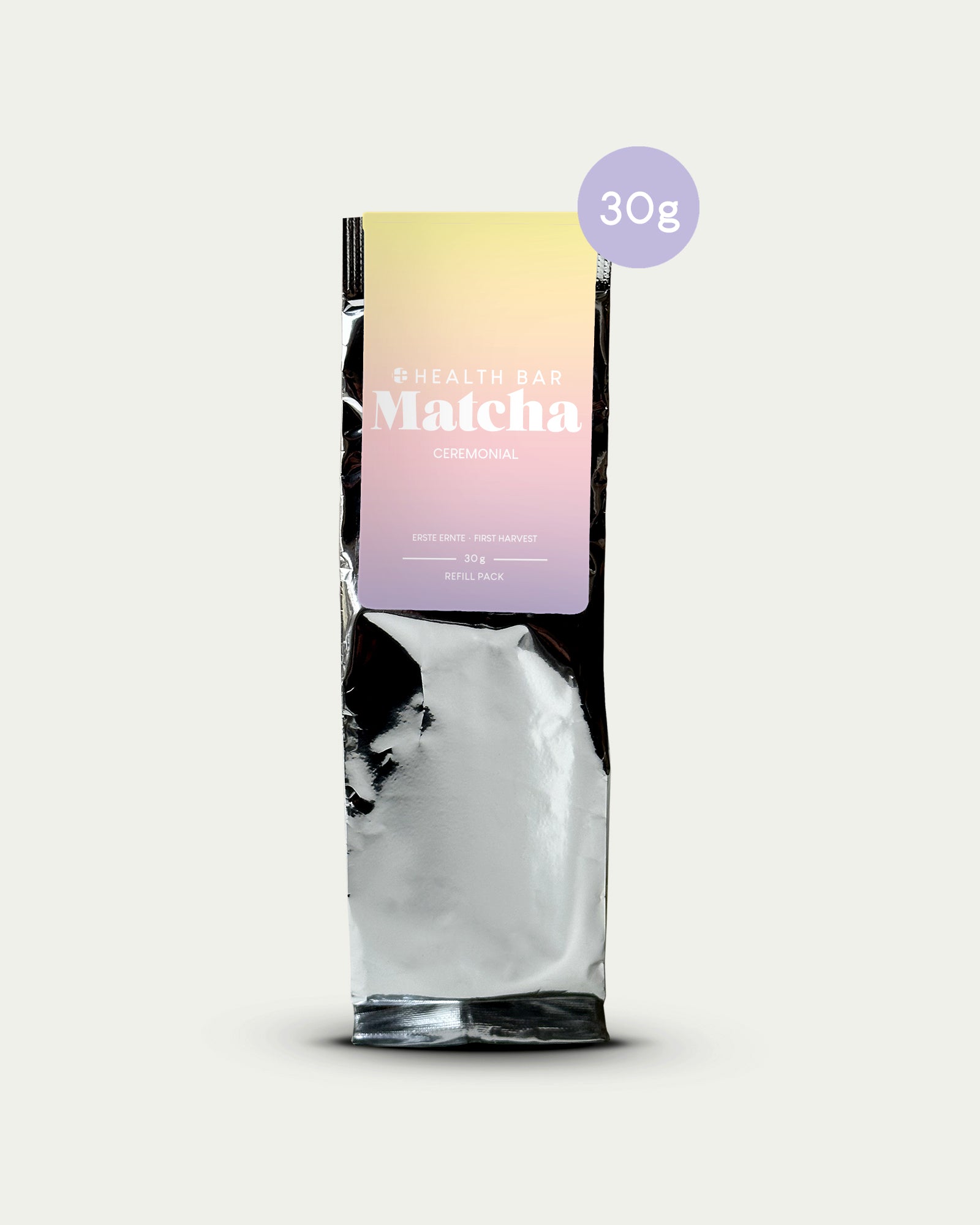
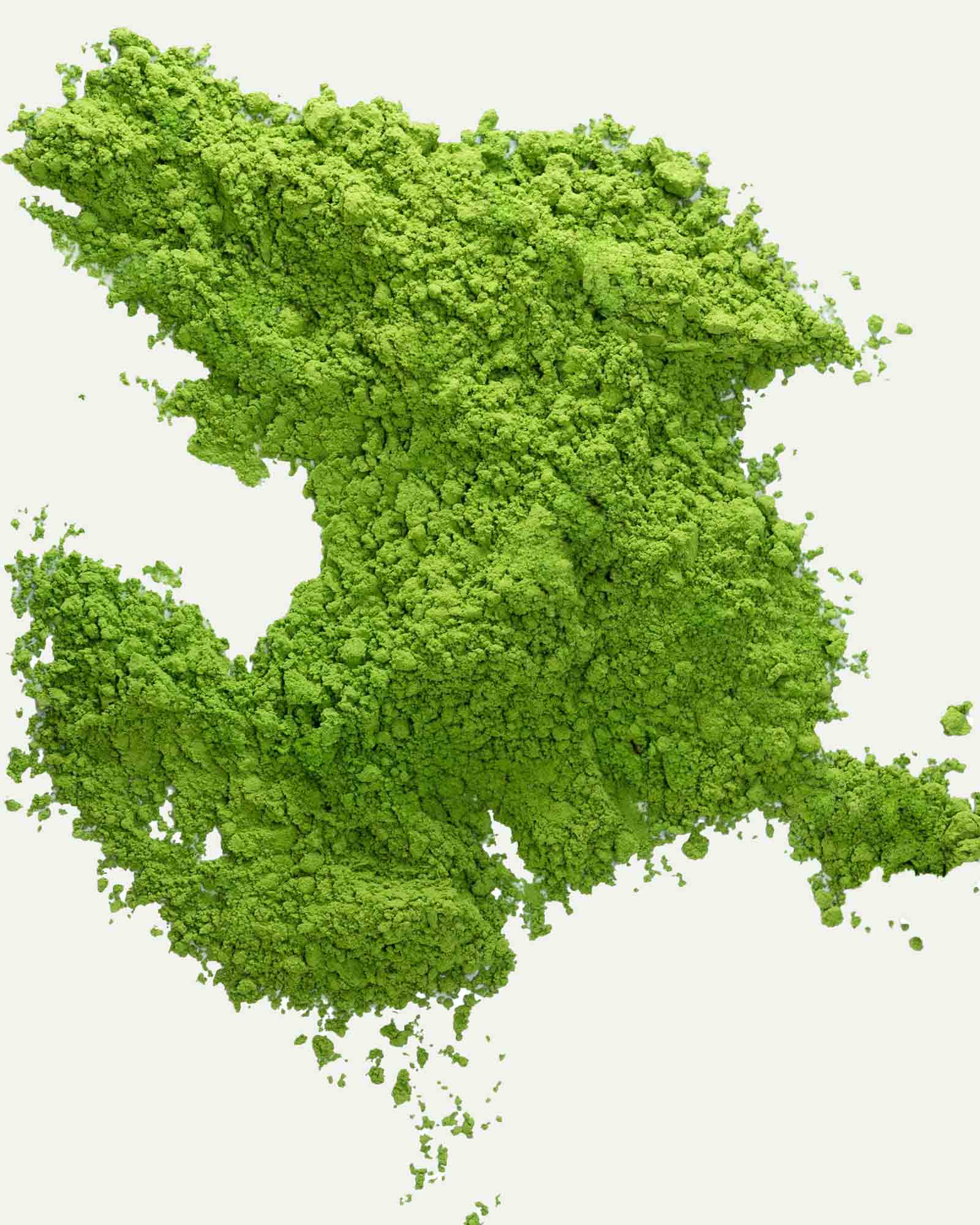
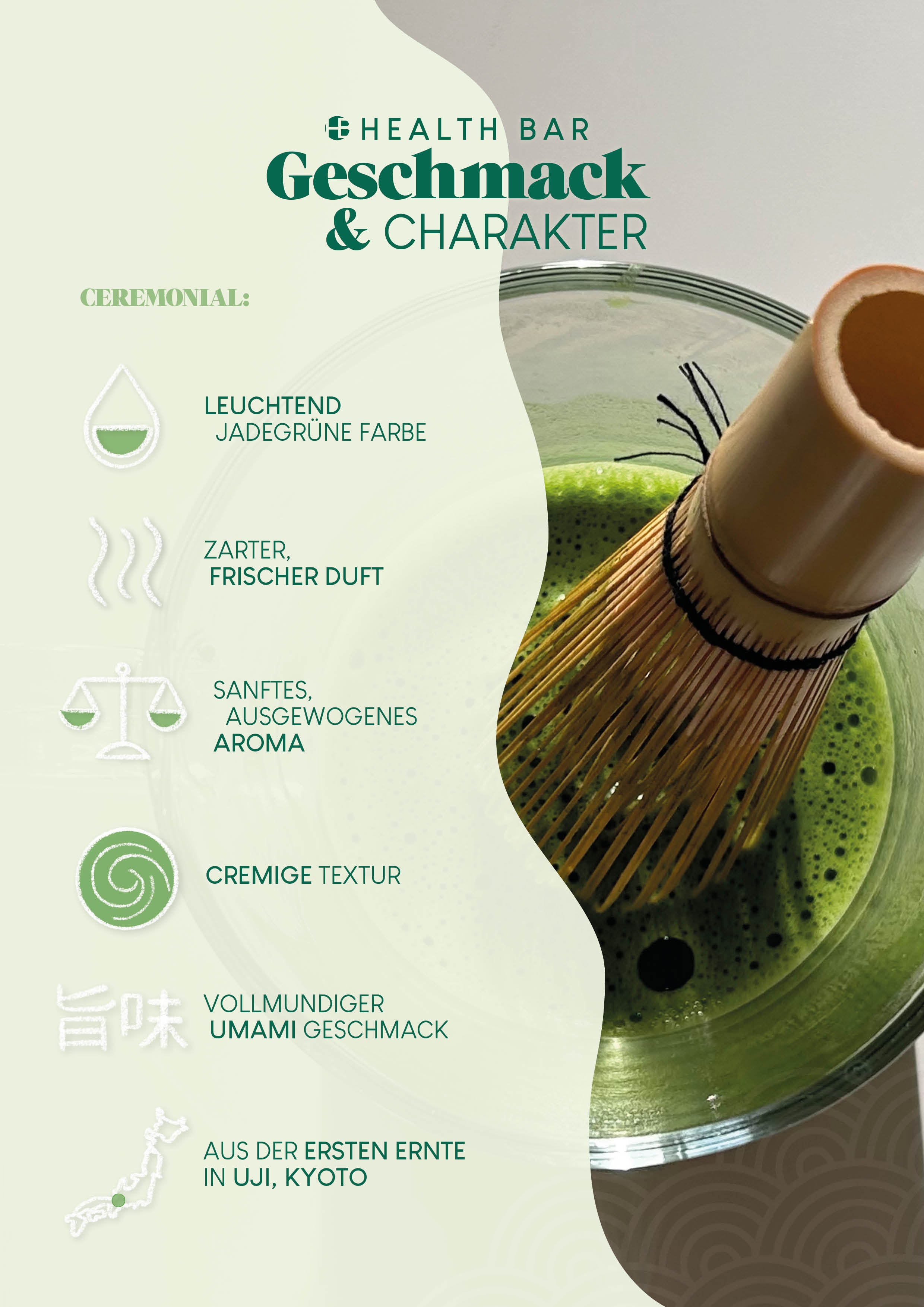
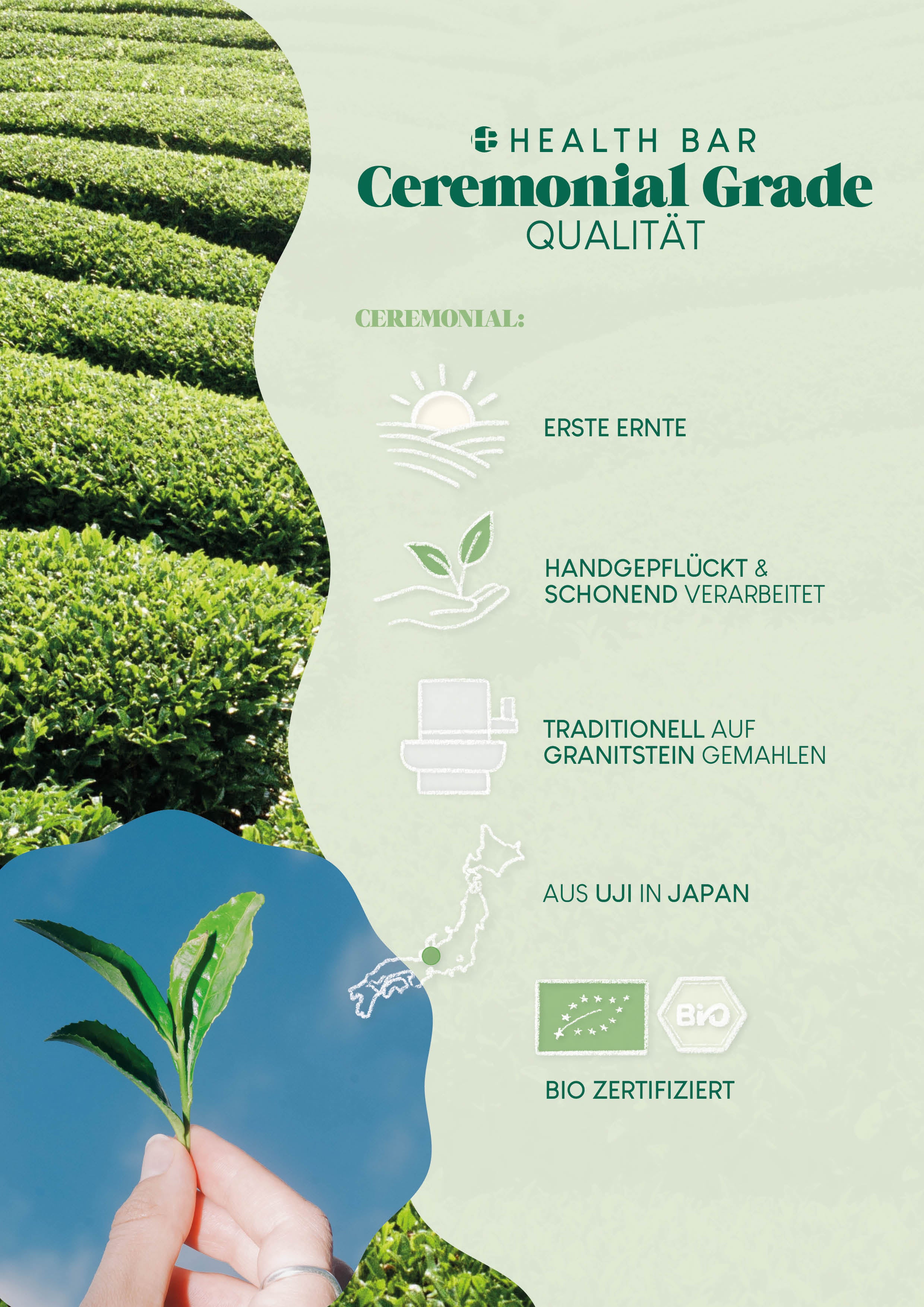
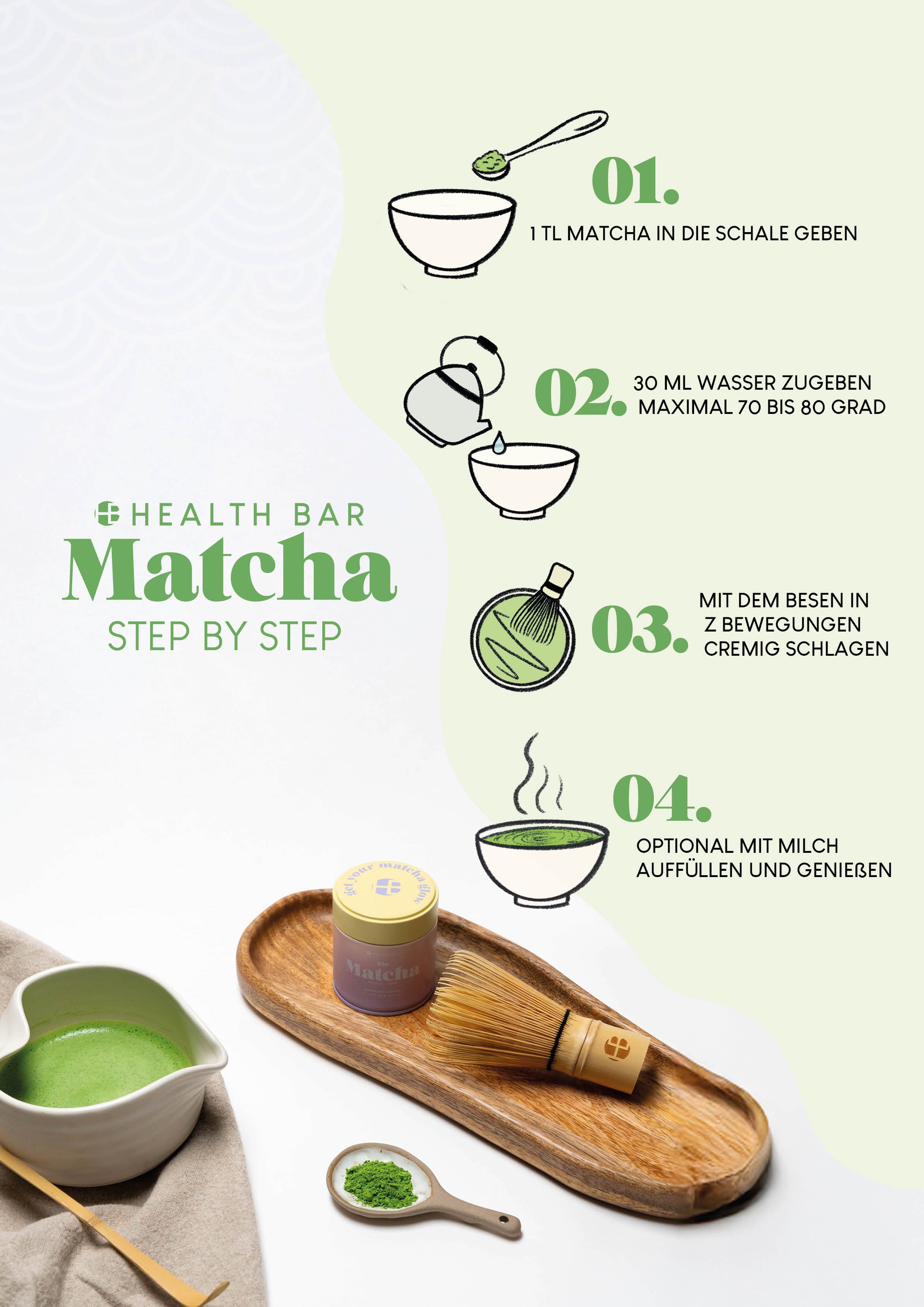
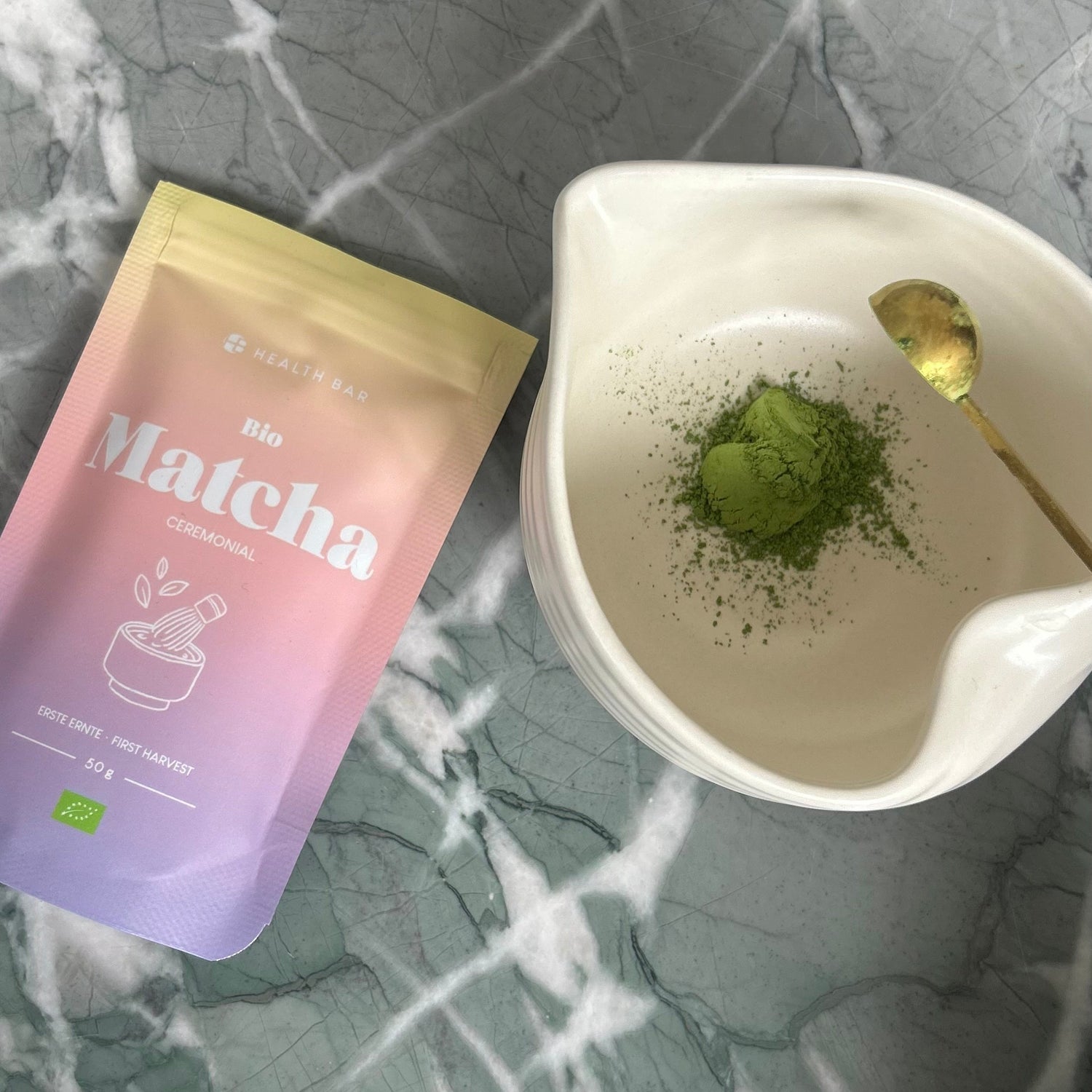
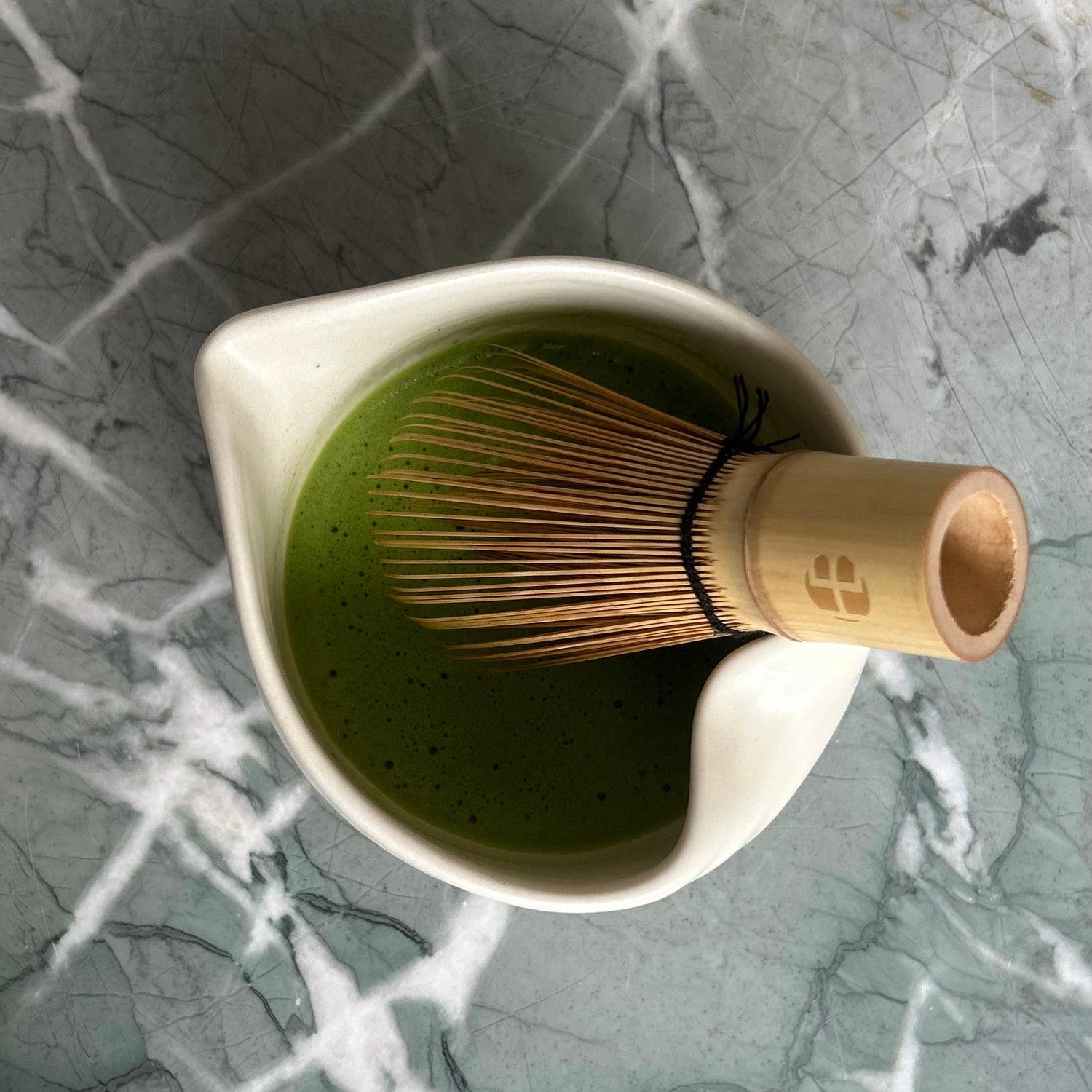
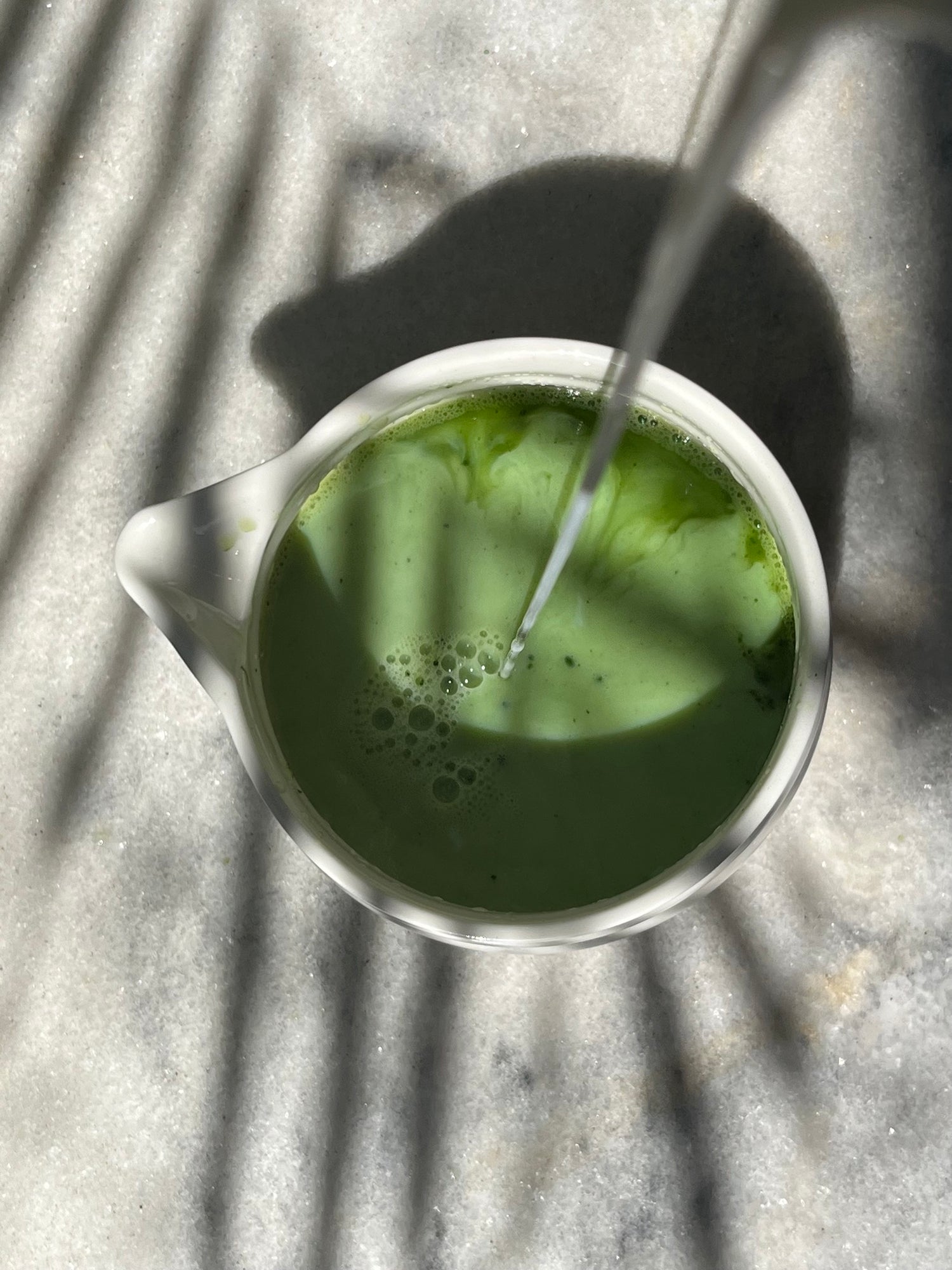
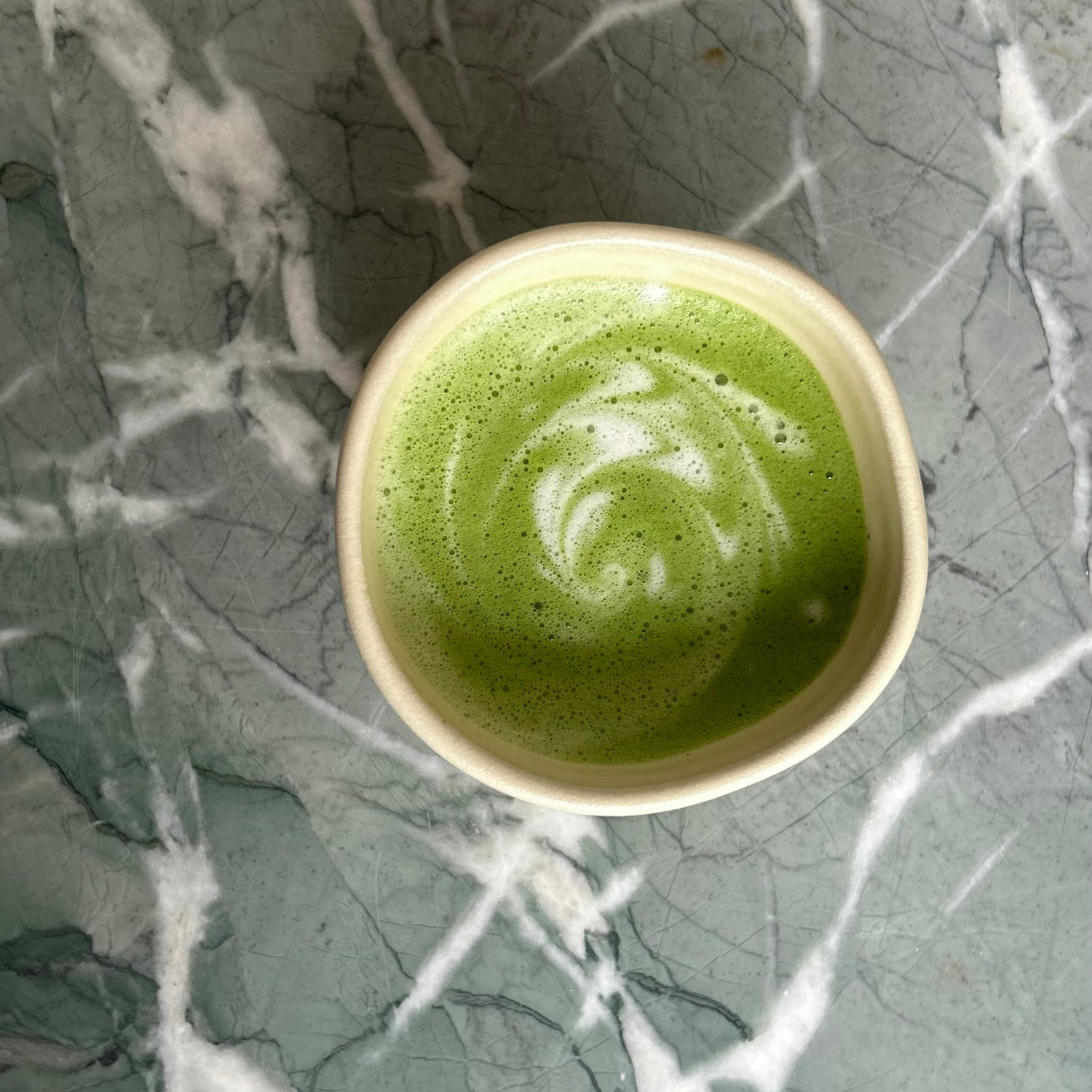
How to prepare matcha correctly – easy & delicious
This is how you can achieve the classic matcha preparation quick and easy – perfect for pure matcha or matcha latte.
- Dosage of matcha
1 level teaspoon of matcha (approx. 2 chasaku bamboo spoons) into a Matcha bowl (chawan) give. - Serve matcha
Add approximately 30 ml of hot water (70–80 °C) and mix with a Matcha broom (Chasen) Whip until creamy
(Z- or W-shaped movements). - Enjoy matcha
For pure matcha, fill with water or for a Matcha Latte Refine with frothed milk.




Stefanie GiesingerI start every day with Ceremonial Matcha. It gives me energy and a vitamin boost.
Nancy TabillionA bowl of matcha, rich in nutrients and antioxidants, might just be the simplest form of self-love! And it only takes a few minutes to incorporate this tea ceremony into your routine!
Remé's DayThe Ceremonial Grade Matcha is incredibly smooth and pleasant. I've been drinking it daily for almost three years and can hardly imagine my routine without it.
Slide stripsMy absolute favorite matcha 💚
I've tried many varieties, but this one is my undisputed favorite. Whether warm with oat milk or iced with mango puree, it's the perfect energy booster and exactly what I like to start my morning with.
Upgrade dein Matcha Ritual
production
Our tea farm is a traditional family business that has been in operation for several generations and has been producing organic matcha for several decades.
Our quality is confirmed by the strict standards of the organic certificate from the Japanese certification body JONA and the German organic certification.
Cultivation
The tea farmers protect the plants from the sun with black textile sheets or, traditionally, straw. Solar panels are also used. This increases the chlorophyll content in the leaves and softens the flavor. Cultivation is carried out without pesticides. Annual soil samples are taken, as well as laboratory tests for heavy metal and radiation contamination, to ensure the highest possible quality. Furthermore, each batch is carefully tested for its mineral content.
origin
The Matcha tea growing region is one of the best and oldest in Japan: the Uji region, west of Osaka. The region is known for its clean water and nutrient-rich soil, free of pesticides. The climate is ideal: mist from the Uji and Kizu rivers keeps the tea plants moist and reduces the risk of frost damage.
